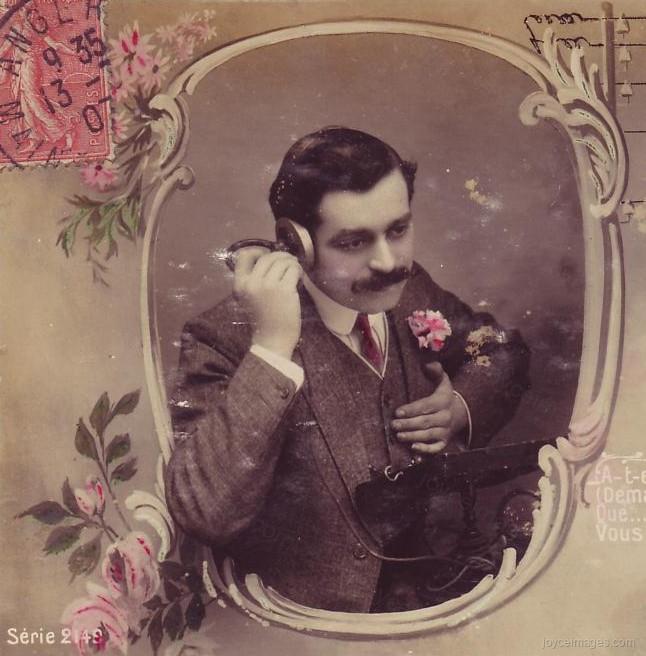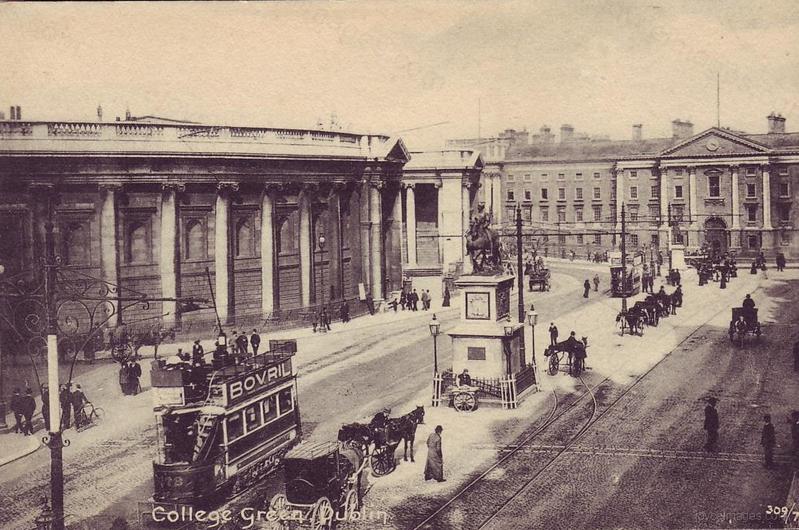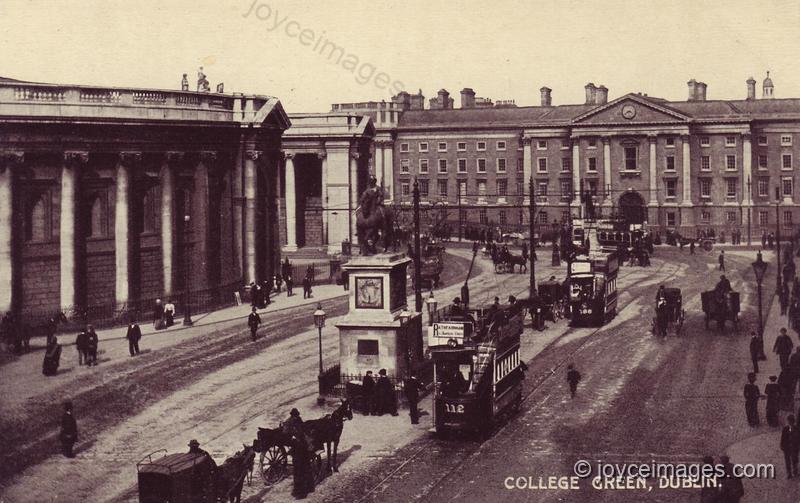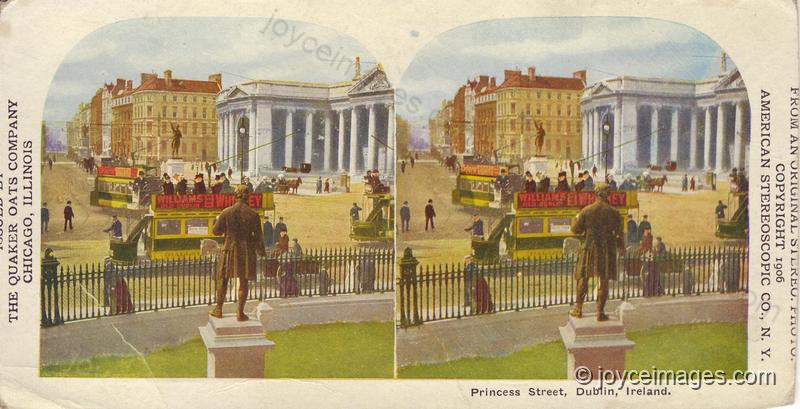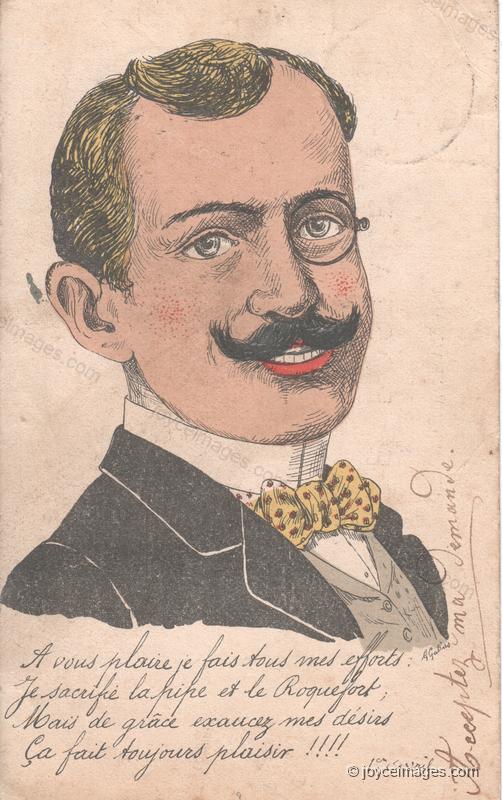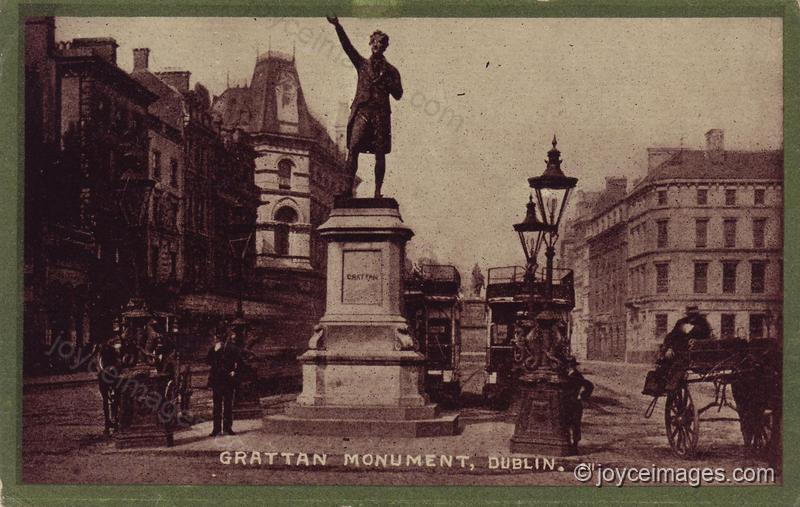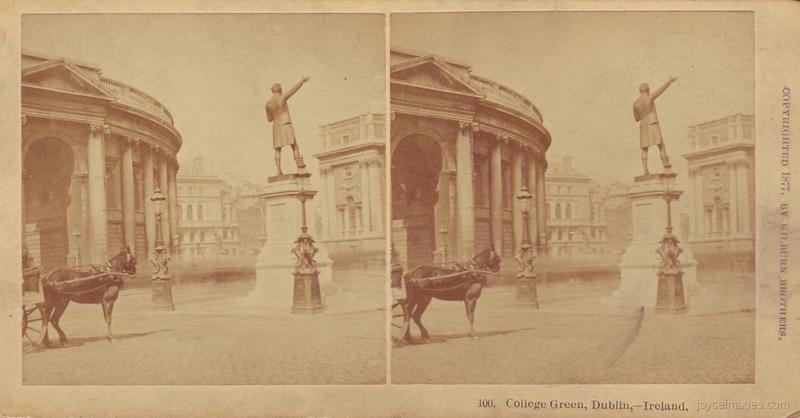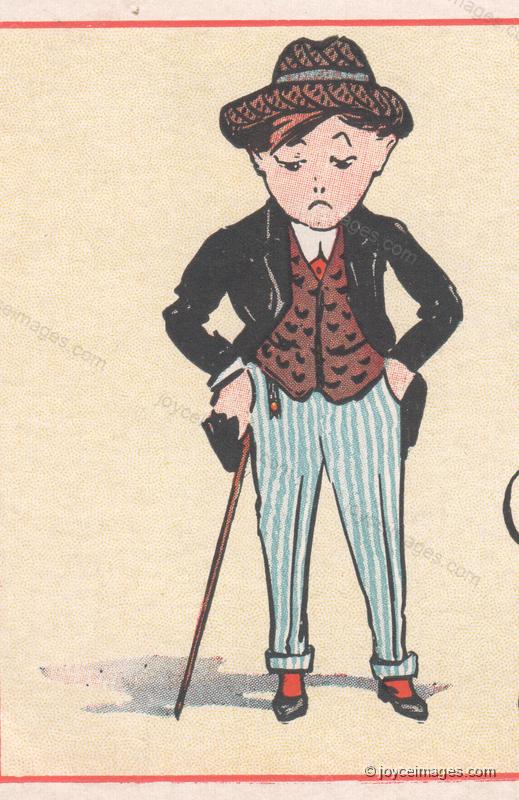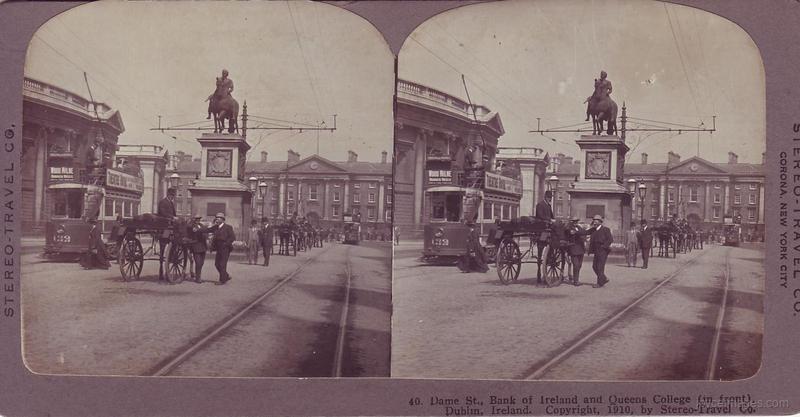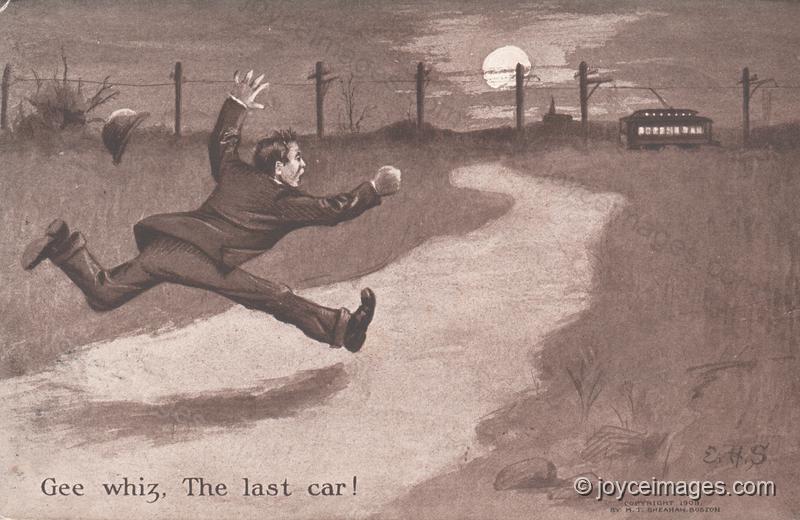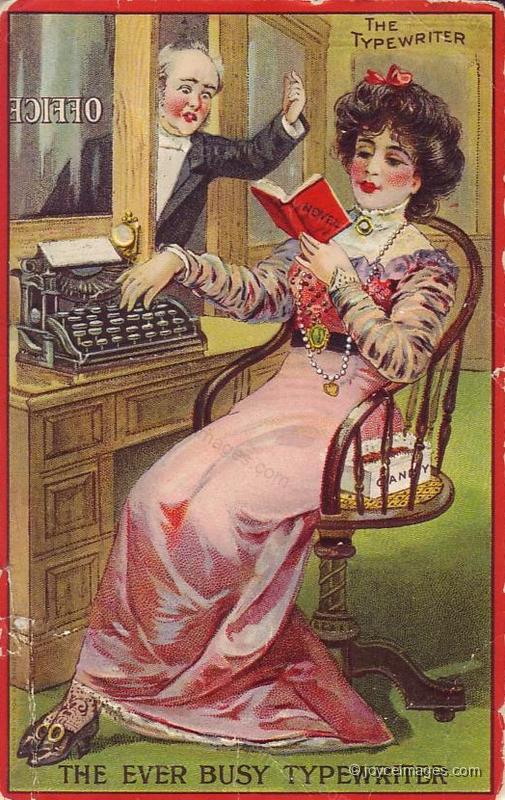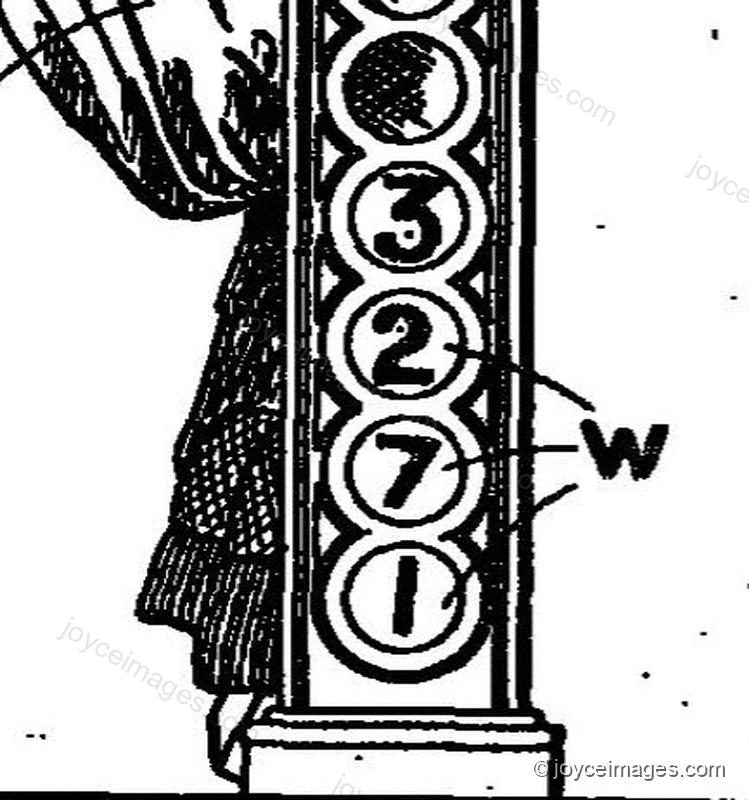"- Ma! Almidano Artifoni said.
He gazed over Stephen's shoulder at Goldsmith's knobby poll." (U10.338)
He gazed over Stephen's shoulder at Goldsmith's knobby poll." (U10.338)
Oliver Golsmith (c.1730-1774) was an Anglo-Irish writer, poet, and physician. His best known works are the novel 'The Vicar of Wakefield' (1766), the pastoral poem 'The Deserted Village', and the plays 'The Good-Natur'd Man' (1768) and 'She Stoops to Conquer' (1771).
Goldsmith earned his Bachelor of Arts at Trinity College (1749), studying theology and law. He later studied medicine at the Univ of Edinburgh and the Univ of Leiden, and at the Univ of Padua (1755 and 1757) then toured Europe, living on his wits.
He then settled in London and worked as an apothecary's assistant. Perennially in debt and addicted to gam/bling, Goldsmith had a massive output as a hack writer for the publishers of London, but his few painstaking works earned him the company of Samuel Johnson, along with whom he was a founding member of 'The Club'. He is buried in Temple Church.
Goldsmith earned his Bachelor of Arts at Trinity College (1749), studying theology and law. He later studied medicine at the Univ of Edinburgh and the Univ of Leiden, and at the Univ of Padua (1755 and 1757) then toured Europe, living on his wits.
He then settled in London and worked as an apothecary's assistant. Perennially in debt and addicted to gam/bling, Goldsmith had a massive output as a hack writer for the publishers of London, but his few painstaking works earned him the company of Samuel Johnson, along with whom he was a founding member of 'The Club'. He is buried in Temple Church.
"Two carfuls of tourists passed slowly, their women sitting fore, gripping the handrests. Palefaces. Men's arms frankly round their stunted forms." (U10.340)
'They looked from Trinity to the blind columned porch of the bank of Ireland where pigeons roocoocooed."(10.342)
A SV showing the Bank of Ireland, taken from within the garden of Trinity.
A SV showing the Bank of Ireland, taken from within the garden of Trinity.
"—Anch'io ho avuto di queste idee, Almidano Artifoni said, quand' ero giovine come Lei. Eppoi mi sono convinto che il mondo é una bestia. È peccato. Perché la sua voce .... sarebbe un cespite di rendita, via. Invece, Lei si sacrifica.
—Sacrifizio incruento, Stephen said smiling, swaying his ashplant in slow swingswong from its midpoint, lightly.
—Speriamo, the round mustachioed face said pleasantly. Ma, dia: retta a me. Ci rifletta." (U10.344)
—Sacrifizio incruento, Stephen said smiling, swaying his ashplant in slow swingswong from its midpoint, lightly.
—Speriamo, the round mustachioed face said pleasantly. Ma, dia: retta a me. Ci rifletta." (U10.344)
"By the stern stone hand of Grattan, bidding halt, an Inchicore tram unloaded straggling Highland soldiers of a band." (U10.352)
The statue of Henry Grattan was erected at College Green in 1876, the work of Dublin-born John Henry Foley (1818 - 1874). It is of bronze and not of stone.
The statue of Henry Grattan was erected at College Green in 1876, the work of Dublin-born John Henry Foley (1818 - 1874). It is of bronze and not of stone.
A SV from 1877 showing the stern hand of Grattan. John Henry Foley was also responsible for the O'Connell monument (Sackville street), and the statues of Edmund Burke and Oliver Goldsmith (Trinity College). Grattan's was the first monument to an Irish nationalist in Dublin, followed by Smith O'Brien on Sackville street.
" —Ci rifletterò, Stephen said, glancing down the solid trouserleg.
—Ma, sul serio, eh? Almidano Artifoni said.
His heavy hand took Stephen's firmly. Human eyes. They gazed curiously an instant and turned quickly towards a Dalkey tram.
—Eccolo, Almidano Artifoni said in friendly haste. Venga a trovarmi e ci pensi. Addio, caro.
—Arrivederla, maestro, Stephen said, raising his hat when his hand was freed. E grazie.
—Di che? Almidano Artifoni said. Scusi, eh? Tante belle cose!" (U10.354)
—Ma, sul serio, eh? Almidano Artifoni said.
His heavy hand took Stephen's firmly. Human eyes. They gazed curiously an instant and turned quickly towards a Dalkey tram.
—Eccolo, Almidano Artifoni said in friendly haste. Venga a trovarmi e ci pensi. Addio, caro.
—Arrivederla, maestro, Stephen said, raising his hat when his hand was freed. E grazie.
—Di che? Almidano Artifoni said. Scusi, eh? Tante belle cose!" (U10.354)
"Almidano Artifoni, holding up a baton of rolled music as a signal, trotted on stout trousers after the Dalkey tram." (U10.363)
"In vain he trotted, signalling in vain among the rout of barekneed gillies smuggling implements of music through Trinity gates." (U10.364)
"Miss Dunne hid the Capel street library copy of The Woman in White far back in her drawer and rolled a sheet of gaudy notepaper into her typewriter.
Too much mystery business in it. Is he in love with that one, Marion? Change it and get another by Mary Cecil Haye." (U10.368)
Too much mystery business in it. Is he in love with that one, Marion? Change it and get another by Mary Cecil Haye." (U10.368)
